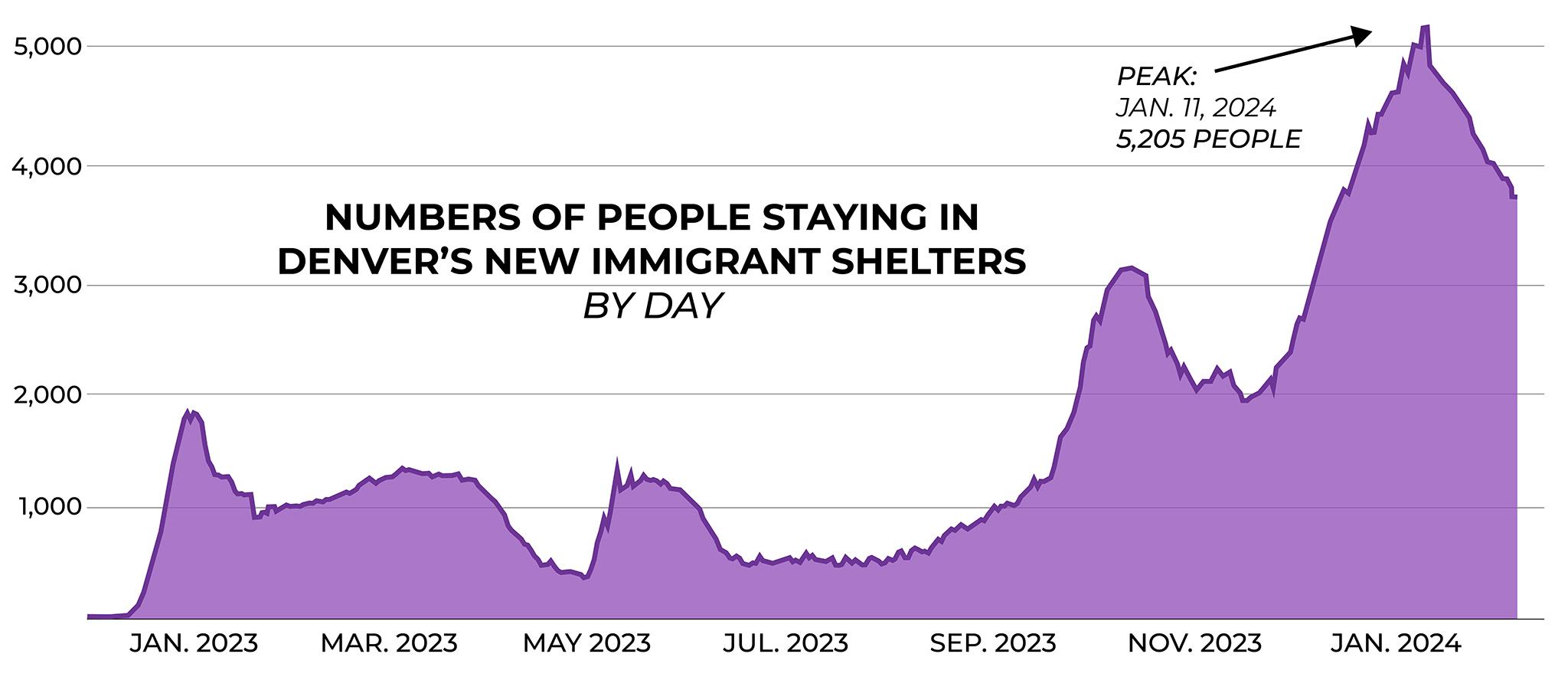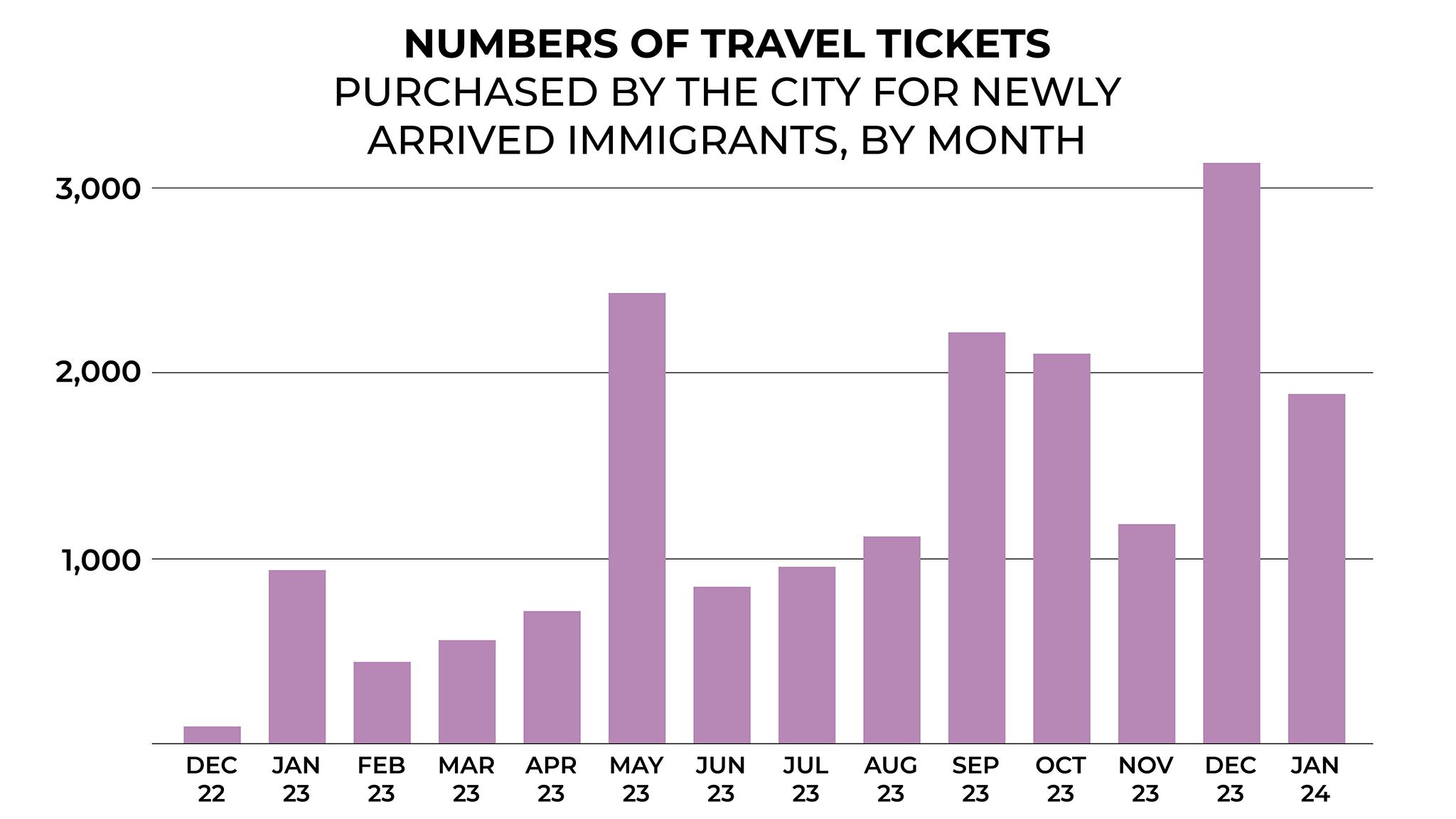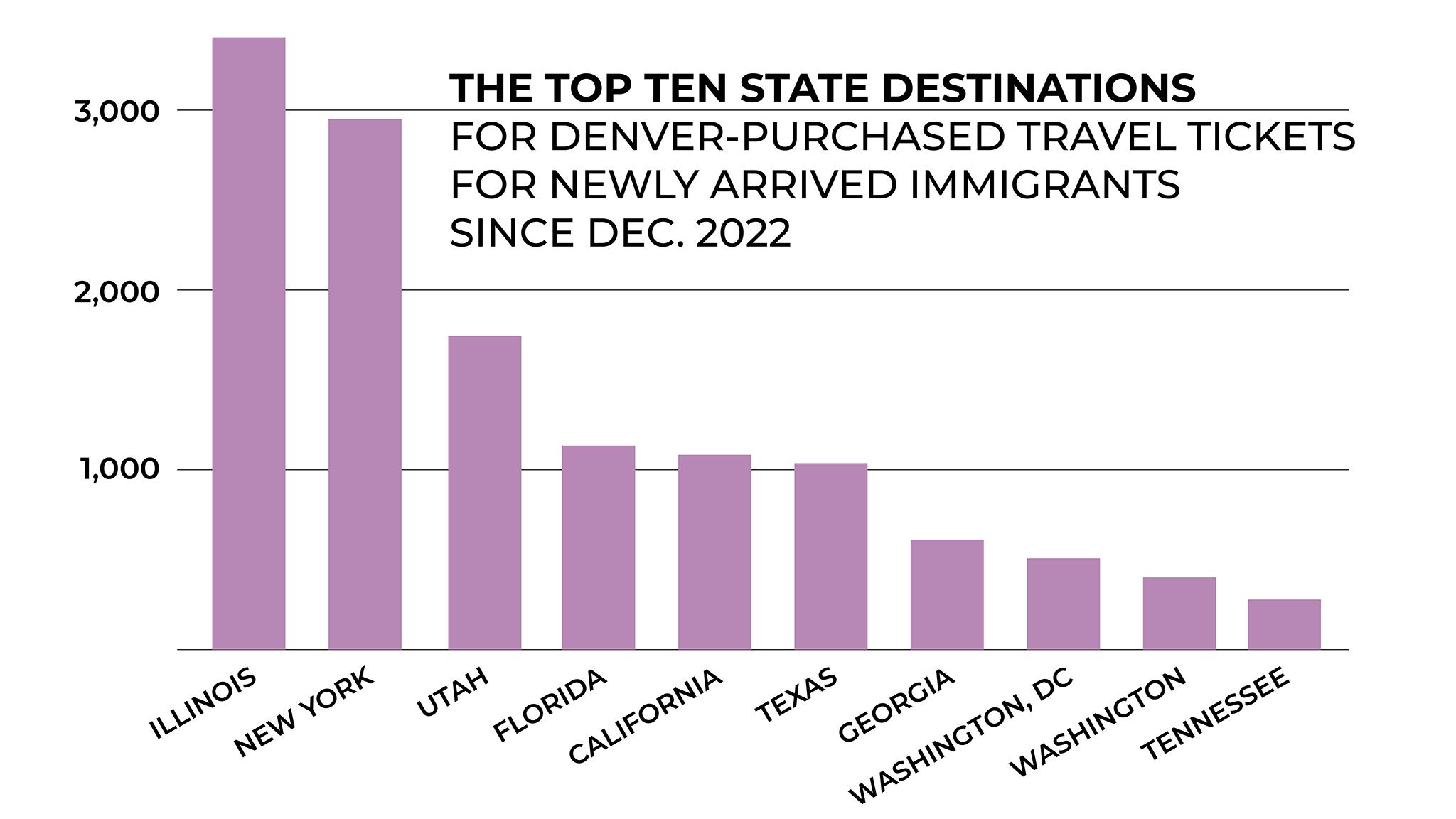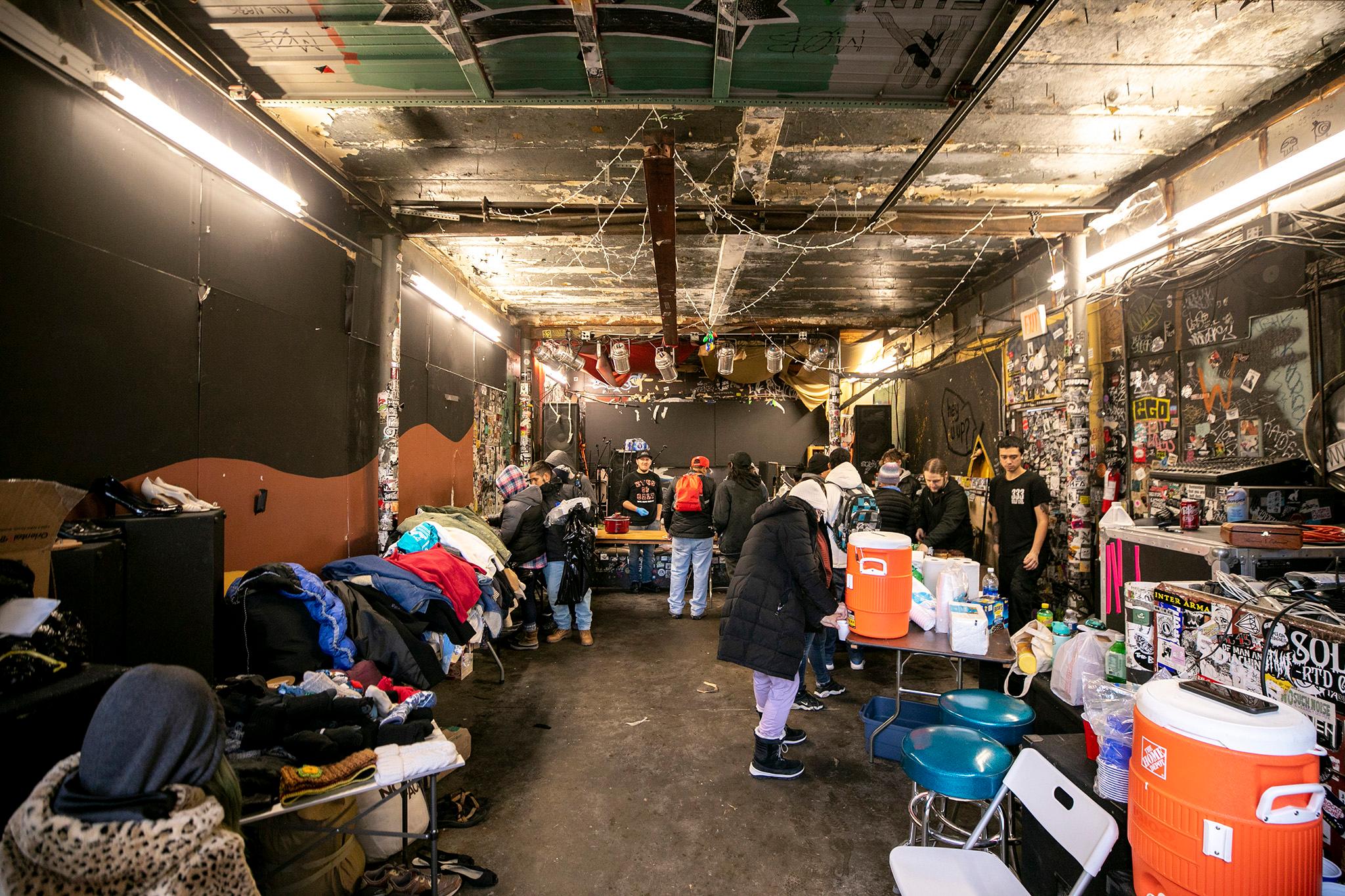The number of new immigrants staying in Denver's temporary hotel shelters peaked at 5,205 people on Jan. 11 this year -- nearly triple the number of people compared to when the city first mobilized emergency immigrant operations in January 2023.
Shelter stays have been dropping, even before the city resumed enforcement of its hotel shelters time limit and began pushing new immigrant families with children out of city hotels this week. Meanwhile, thousands who had already timed out or otherwise made their way here need to figure out where to live and work in Denver.
The decrease in arrivals, combined with fewer people in shelters, means the city can start to regroup and potentially figure out what a long-term response might look like.
"In that early January period, there were days where we would go, 'If another bus comes I don't know where we're going to put people.' That's where were like down to nine or 10 hotel rooms at that point," said Denver Human Services spokesperson Jon Ewing. "You're just sitting there going, 'Are we going to have capacity to make it through the night? What are we going to do for people?' And incredibly, the buses stopped coming."

The recent drop-off in arrivals likely reflects a decrease in people crossing the U.S. border according to U.S. Customs and Border Protection (CBP).
"Consistent with historical trends and enhanced enforcement, the first two weeks of January saw an over 50% decrease in southwest border encounters between ports of entry according to preliminary figures," wrote CBP in a January press release.
The Associated Press reported in January that Mexico increased enforcement on its side of the border leading to a sharp decrease in crossings. According to the Associated Press, Mexican immigration officials have forced people from trains used by travelers to get to the U.S. border and resumed busing and flying people elsewhere in Mexico. In some cases, they deported them back to Venezuela.
The number of buses arriving from Texas has decreased as well.
Denver received 144 buses chartered directly from the state of Texas in December. In January, the city received 39 buses from Texas. But in the past few days, only one to two buses have arrived, according to city staff working on the city's emergency response.
Texas Gov. Greg Abbott's administration bused thousands of new immigrants to Denver and other major U.S. cities last year, something immigrant advocates and Democrat politicians, including former Mayor Michael Hancock, called a political stunt. Those trips contributed greatly to Denver's resources being stretched thin, though some new immigrants arrived in the city on their own or through the help of nonprofits in other states, including Texas.

Denver has also continued buying bus tickets for new immigrants to travel elsewhere in the U.S. Since November of 2022, the city has purchased more than 18,600 tickets for new immigrants, including approximately 3,400 to Chicago, 2,880 to New York City and 1,680 to Salt Lake City.
"Many individuals arriving in Denver from the southern border have other destinations in mind. This is often because they were bused to Denver in spite of their actual wishes," said a city spokesperson. "Individual tickets are purchased based on destination requests directly from migrants to various cities, after assurances are gathered that the individual or family truly desires the intended location."

With decreasing immigrant arrival numbers, the city is figuring out how to support a large new immigrant population long-term.
The city has seen lulls like this in the past year when arrivals dropped in May and July of 2023. At the time, Denver closed some welcome centers and shelters, reopened rec centers initially mobilized for the first arrivals and regrouped before more people arrived.
But this past winter has seen so many newcomers arrive in Denver that even with a current drop, the city still has to figure out how to accommodate thousands of new immigrants with limited local and federal funds.
"It's really, really hard to do the level of case management or the level of assistance you want when you're dealing with more than 200 people, sometimes nearly 300 people arriving in a single day," Ewing said. "I think it allows the nonprofits to catch their breath a little bit and just kind of work with families."
But funding remains an issue. Mayor Mike Johnston has asked city agencies to prepare spending cuts to fund the city's immigrant response. With limited resources, the city has resumed kicking families with children out of hotels and shelters after 42 days. Denver spent around $46 million on new immigrant resources in 2023.
Without work authorization in an expensive city with a housing crisis, new immigrants have told Denverite they have nowhere to go. Some people have been camping on the streets, while nonprofits and grassroots volunteers are scrambling to support as many people as they can.
Meanwhile, Denver has not yet finalized contracts with service providers that would work with new immigrants staying in the city.
In 2023 Denver put out a request for proposals for nonprofits and companies to take over operations after former Mayor Michael Hancock backed off a $40 million contract with the international security firm GardaWorld.
But none of those contracts have come to fruition yet, in part because the city needs to figure out how to pay for them.
"To date, Denver has served more than 38,000 newcomers, and could spend up to $180 million to manage this crisis in 2024," said Jordan Fuja, Press Secretary for the Mayor's office. "Given these financial implications, the city is taking a close look at these RFPs to ensure any partnerships meet the city's evolving needs."
Another funding challenge is anticipating when arrivals will start to rise again. While they have dropped off in recent weeks, staff expect them to rise again in the future. But the city cannot anticipate when, or whether arrival numbers will look more like 2023 or early 2024.
"The numbers are lower, which is very good," Ewing said. "Do we expect this to last? No, we do not expect this to last."













